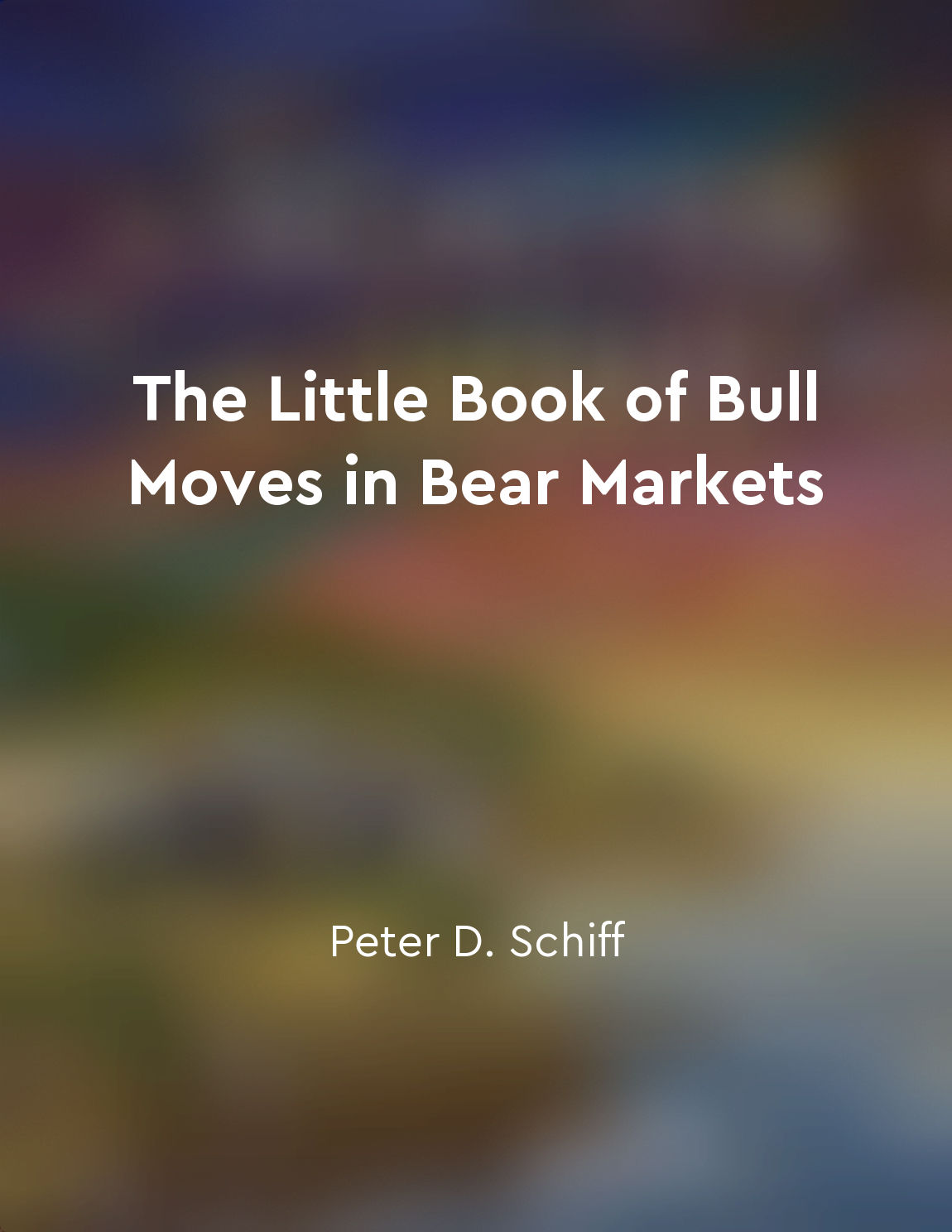Psychological factors influence market movements from "summary" of Charting and Technical Analysis by Fred McAllen
Market movements are not solely driven by facts and figures. In fact, a significant portion of market movements can be attributed to the psychological factors that influence investors' decisions. These psychological factors can include emotions such as fear, greed, and anxiety, as well as cognitive biases that affect how individuals perceive information and make decisions. One key psychological factor that influences market movements is herd mentality. This is the phenomenon where individuals tend to follow the actions of the majority, even if it goes against their own beliefs or analysis. When a large number of investors start buying or selling a particular asset, it can create a snowball effect that leads to significant price movements. Another psychological factor that plays a role in market movements is confirmation bias. This bias occurs when individuals seek out information that confirms their existing beliefs and ignore information that contradicts them. This can lead to distorted perceptions of the market and influence trading decisions based on incomplete or biased information. Furthermore, the concept of loss aversion can also impact market movements. Loss aversion refers to the tendency for individuals to strongly prefer avoiding losses over acquiring gains. This can lead to irrational decision-making, as investors may hold onto losing positions in the hopes of avoiding a loss, even when it may be more prudent to cut their losses and move on.- Understanding and taking into account these psychological factors is crucial for successful trading and investing. By recognizing how emotions and biases can influence market movements, traders can better navigate volatile markets and make more informed decisions based on a clear understanding of the underlying factors at play.
Similar Posts

Boom and bust cycles fueled by greed
The idea that financial markets are driven by cycles of extreme growth and collapse is not a new one. Throughout history, we ha...
Derivatives can be used to hedge against risk
Derivatives can play a crucial role in managing risk. Companies face various risks in their day-to-day operations, ranging from...

Tax planning strategies are crucial
Tax planning strategies play a critical role in financial management. By carefully considering the tax implications of various ...
Environmental, social, and governance factors are increasingly important in investment decisions
In today's investment landscape, there is a growing recognition of the significance of environmental, social, and governance fa...
Mental accounting affects financial choices
Mental accounting affects financial choices. It's like a filing system in your mind, where money is divided into different ment...
Successful investors focus on highquality companies
One key principle that stands out amongst successful investors is their unwavering focus on high-quality companies. These inves...
Understand your financial history
To get a handle on your finances, you need to take a deep dive into your financial history. This means understanding your past ...
Unemployment can persist without intervention
The existence of unemployment in a modern industrial system, where there is no question of the adequacy of the effective demand...
Learn to manage debt effectively
Managing debt effectively requires a deep understanding of how debt works and its potential consequences. It is crucial to be a...

The Federal Reserve plays a key role in shaping the economy
The Federal Reserve is a powerful entity that wields significant influence over the economy. As the central bank of the United ...

